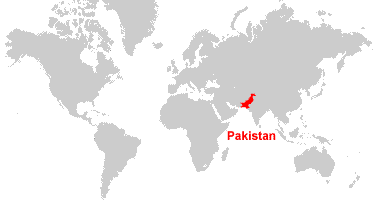Country of the Month: Pakistan
Approximately 890,000 abortions occur every year in Pakistan. How’s that for autonomy and choice? While often viewed as a patriarchal nation with a mindset that is steeped in antagonism towards women, the landscape in Pakistan has seen a lot of change thanks to the efforts and initiatives of several activists, one of which includes the creation and running of a hotline.

The laudatory efforts in promoting a woman’s right to choice and autonomy started with August 1997, when the Commission of Inquiry for Women in Pakistan made a remarkable recommendation to the effect that a Woman’s right to obtain an abortion by her own choice within the first 120 days of pregnancy should be unambiguously declared an absolute legal right. However, the development never saw the light of day as it never gained the force of law.
What does Pakistan’s legal system say about abortions?
Abortions are permitted legally only if there is a threat to the life of the woman by the pregnancy, or, if there is a threat to her physical and mental well-being. This squarely keeps abortion out of reach of a woman in the face of incest, rape and decisions to abort concerning unwanted pregnancies. These prohibitions are a product of the simmering undercurrent of patriarchy in Pakistan, where stigma keeps women from asserting their rights.
In Pakistan, missed abortion, inventible Abortion or incomplete abortion services are available in the first and second trimesters, and are open for access in the public sector. The most common methods of abortion include dilatation and curettage, EVA, MVA, medical abortions using with Mifeprestone and/or Misoprostol, or with Methotrexate Miso. In Pakistan, Mifepristone is not licensed but Misoprostol and Methotrexate are available in the country.
Consequent to the barriers…
Owing to the imposition of legal barriers and stigma backed barriers to the access of safe methods of abortion, there is a tremendous wave of access and resort to abortions that are unsafe. This Report explains that the non-availability of legal and safe abortion mostly affects poor women, while their richer counterparts are able to obtain illegal but safe services within the country. Statistics show that in Pakistan, an estimated 196,671 women are hospitalized for complications of induced abortions that are conducted unsafely. When such complications occur, poor women are more likely to seek care from government facilities, which in turn are not well staffed, or lack the requisite facilities, or both.
All through this month, we will be taking a look at the scenario concerning abortions in Pakistan, and you’ll hear some intriguing voices from the country, talking emphatically about the entire landscape concerning women, abortions and women’s rights.






